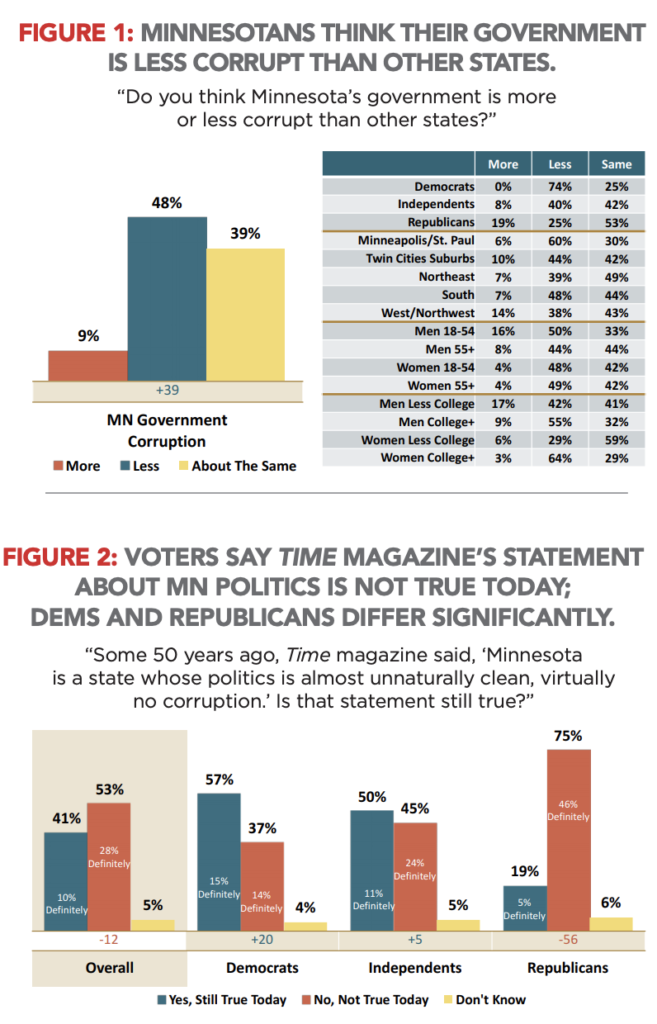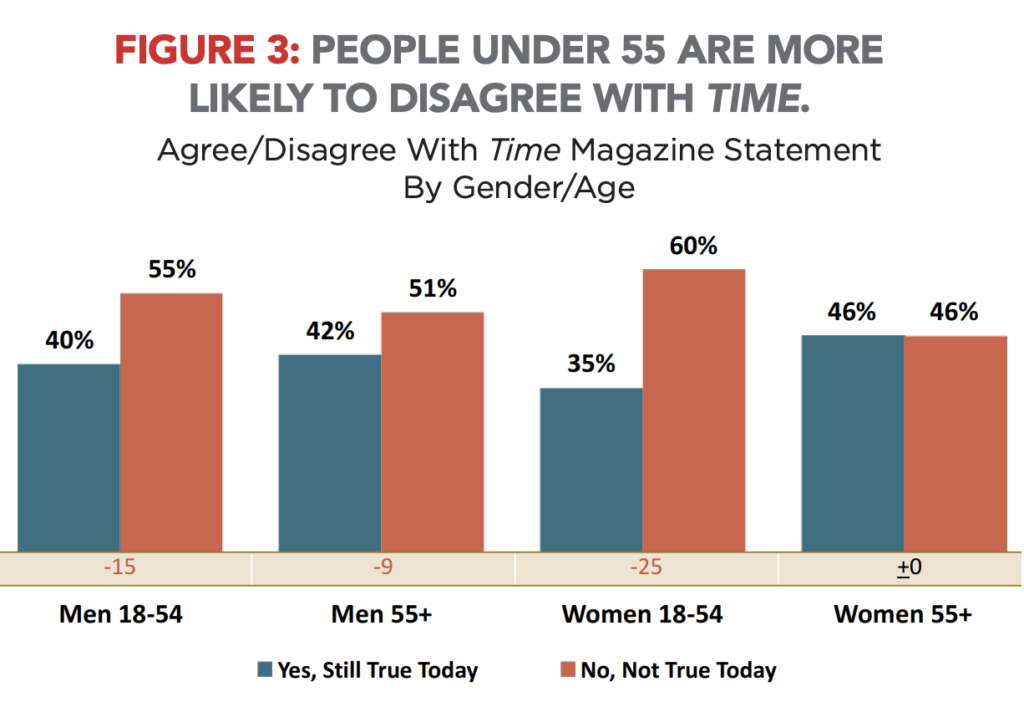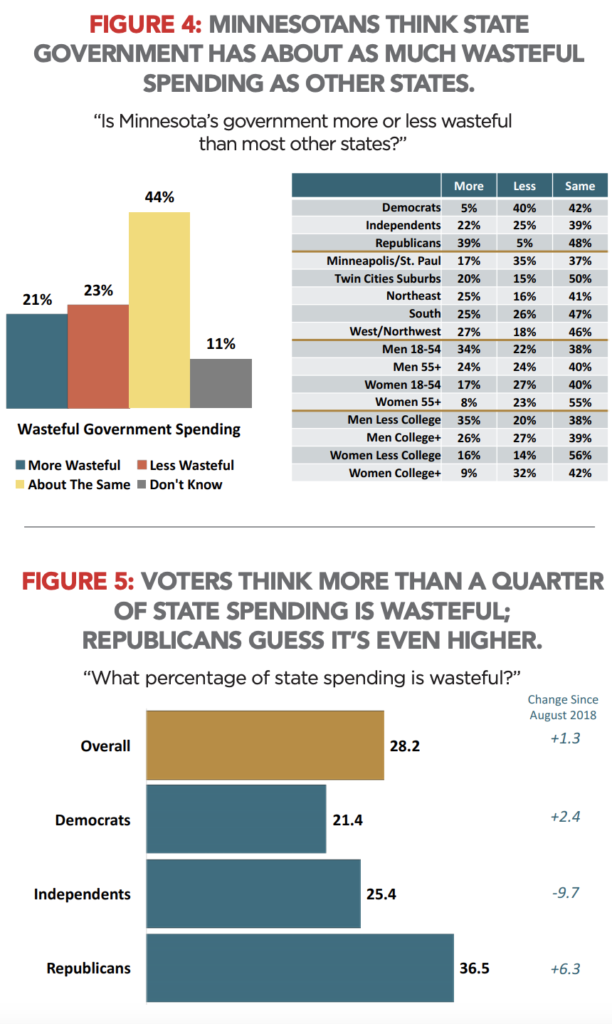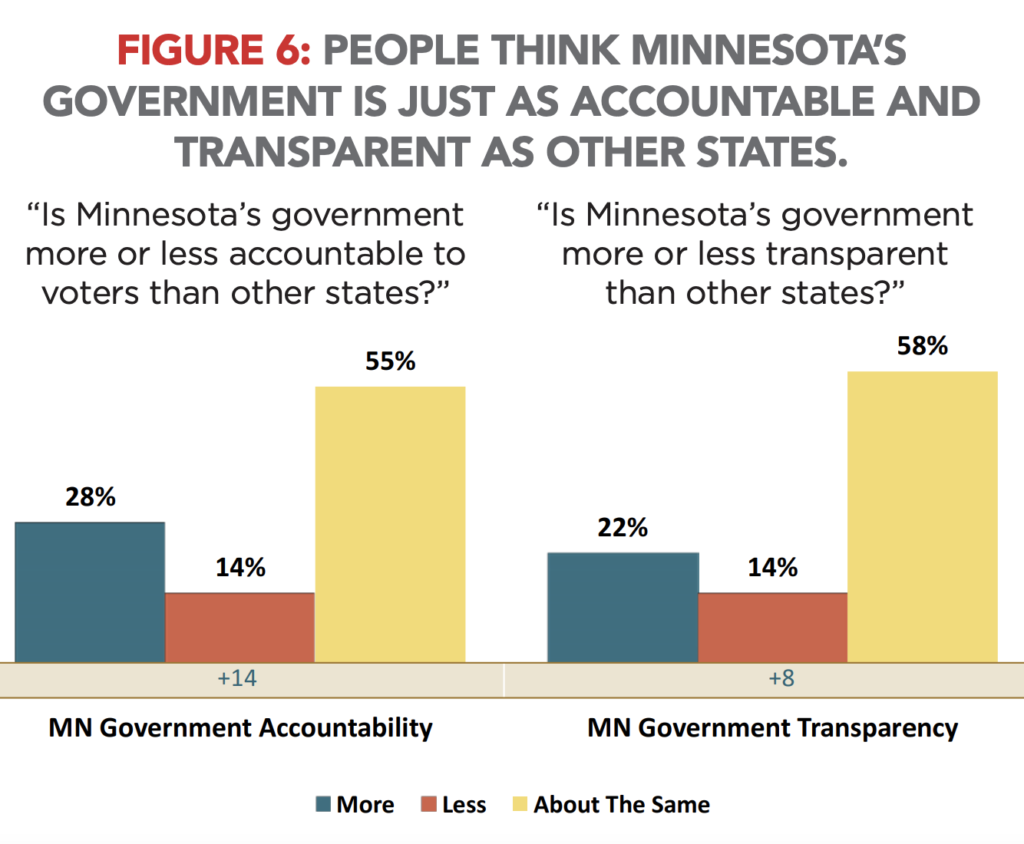Poll: Still above average?
Minnesotans aren’t particularly disturbed by how badly their state functions.
Minnesota has long enjoyed a reputation for relatively clean, efficient and progressive government. Is that still the case?
In 1973, Time magazine paid gushing tribute to Minnesota’s government as “almost unnaturally clean, with virtually no corruption.” Today, most Minnesotans think that praise is outdated, assuming it was ever true. By 53 percent to 41 percent, Minnesotans in our Thinking Minnesota Poll say that characterization is not accurate now, and younger residents are most likely to think Time’s praise no longer applies.
Meeting Street Research, a polling company based in Charleston, South Carolina, interviewed 500 registered Minnesota voters via cellphone and landlines from September 15-17. The margin of error is +/- 4.38 percent. By most measures, Minnesotans believe their state’s government is above average. Thus, 48 percent of Minnesotans think our state is less corrupt than other states, compared to only 9 percent who think it is more corrupt and 39 percent saying it is about the same.


Minnesotans have most reservations about their government when it comes to wasteful spending. While 21 percent think Minnesota has more wasteful spending than most other states, slightly more, at 23 percent, say we have less waste, while 44 percent believe we are about the same as other states. Minnesotans must have a low opinion of the efficiency of government in general, since the average respondent in our survey estimates that 28 percent of all of Minnesota’s state spending is wasted. This would seem to allow plenty of room for spending reductions across a broad range of government activities.

If Minnesotans are relatively complacent about the quality of their state’s governance, it may be largely because they are simply unaware of some of the scandals that have emerged in recent years. Our survey finds that the largest number of Minnesotans are familiar with the fiasco involving the state’s vehicle and driver’s license computer system, commonly referred to as MNLARS. Sixty-eight percent say they are aware of that story, while 32 percent apparently have never heard of it.
A small majority, 54 percent, are aware of the recent turmoil in the state’s Department of Human Services, where top leaders have resigned in recent months. But 44 percent are unaware of the turmoil at DHS, despite a large amount of news coverage.
Other recent scandals are even less well recognized. Only a minority of Minnesotans have heard about alleged widespread fraud in the Department of Human Services’ child care assistance program. Only 39 percent are aware of news stories about DHS’s overpayments of tens of millions of dollars to certain Indian tribes, while even fewer, 24 percent, are aware of the scandal surrounding the IRRRB’s backdoor hiring of a defeated DFL Congressional candidate.
The Thinking Minnesota Poll suggests that while Minnesotans are by no means uncritical of their state’s governance, a plurality, at least, remain relatively complacent. The survey suggests further that such complacency, to the extent that it exists, may be driven by the fact that most Minnesotans don’t know much about recent news stories that tend to cast doubt on the integrity, efficiency, transparency and accountability of their state’s government. Whether this is because local press outlets downplay these stories, or because Minnesotans simply are not paying attention, is an unanswered question.
